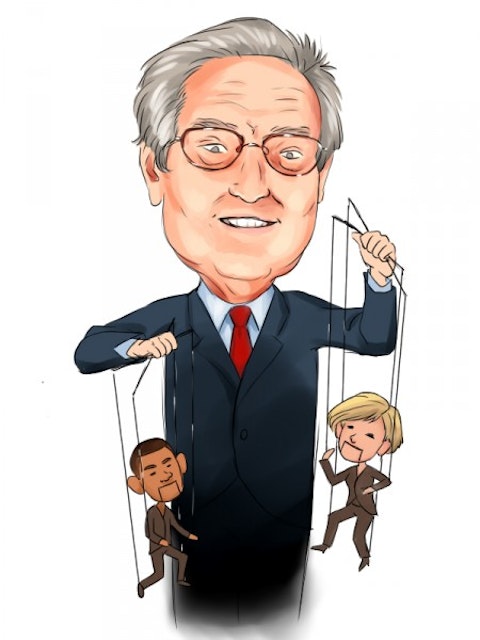According to some readers, the only criticisms of agricultural giants who employ the usage of genetically modified crops come from hipsters or uninformed journalists. These same readers may argue that without GMCs, humankind’s current way of life could not be sustained. If you asked them to explain their belief, they’d probably say that the demand for food surpasses the actual supply of food without GMCs. They’ll probably add that agribusiness, as some like to call it, is essential to further societal progress.
Do you agree with any of these points?
Well, according to a very reputable source other than opinionated hippies, you might just be wrong if you agree with any of the points above. The U.N.’s Conference on Trade and Development, or UNCTAD, just published its 2013 Trade and Environment Review, and the results may surprise a lot of people.

The report then warns of the specific agribusiness companies that have a major influence on national and global public policy. Monsanto Company (NYSE:MON)’s 2005 violation of the Foreign Corrupt Practices Act for its actions in Indonesia is mentioned. The following peers are also chided: BASF SE (ADR) (OTCMKTS:BASFY), E I Du Pont De Nemours And Co (NYSE:DD), Syngenta AG (ADR) (NYSE:SYT) for its role in “pressuring” the Malaysian government to reverse a ban on a “highly toxic chemical herbicide,” and The Dow Chemical Company (NYSE:DOW) for an influential seat it holds on one EPA committee.
The point that the U.N.’s report is trying to make is that there’s a clear “revolving door,” in its words, between the world’s largest agribusinesses and various national governments. In many instances, like the case of a former Monsanto attorney (page 64, link above) playing a crucial role in Brazil’s decision to accept a pro-genetically engineered biosafety law, for example. Or the time when an EU Food Safety Authority official who worked on GE-specific cases represented Syngenta at an EU hearing. According to the report, “her move violated the EFSA’s required two-year waiting period.” She’s now Syngenta’s Head of Biotech Regulatory Affairs for Europe, Africa, and the Middle East.
The examples of corruption go on, and we provided quotes from the report so you would understand how demonstrative it really is in its claims.
If there’s no supply-side problem, why do some people go hungry?
As the Motley Fool explains in its analysis of this same report, the global imbalance in food supply originates in the very rural areas where many of the crops are grown. In their interpretation of the U.N.’s analysis, they write, “for years, they [Chinese, Indian and sub-Saharan farmers] have been encouraged by their governments to produce cash crops for export,” adding they “now only receive a pittance of what they need to purchase a balanced diet.” The report also offers solutions.
One potential alternative proposed in the Trade and Environment Review is a proliferation of organic farming, particularly in the communities where hunger and malnourishment are most prevalent. The report lists a number of beneficial environmental factors that would benefit from this switch, but it’s important to note that the UNCTAD finds agriculture giants like Monsanto, Syngenta and Du Pont as part of the problem rather than any solution. The only realistic way to build organic farming communities in many areas is to reduce these companies’ control over public policy in those areas, to put it simply.
Why is this important to you?
First and foremost, this report should destroy any notion you held that investing in large agribusinesses is the clear-cut way to bet on a secular rise in food demand. As mentioned above, many investors’ general assumption is that as the global population continues its march toward 8 billion people, the largest food companies will benefit. However, if enough individual regulatory bodies begin to adopt the same tone that the UNCTAD has, government-mandated breakups aren’t out of the question.
Remember, this is the report that specifically lists “curtailing corporate concentration in the food system” as the first priority for action in one of its main commentaries. Let those words sink in for a bit.
What’s even scarier is that Monsanto, Syngenta, Du Pont, BASF and Dow Chemical all pay fairly handsome dividend yields, meaning that they’re undoubtedly in many investors’ retirement portfolios. For example, Monsanto pays a yield of 1.6% and sports an institutional ownership percentage of 86%. Syngenta’s yield is above 2%, Du Pont’s above 3%, and BASF and Dow Chemical also offer dividend yields in this range.
The risk of industry wide fragmentation won’t show up on any Wall Street earnings projection, and it certainly won’t appear in analysts’ price targets. As we know from multiple cases of government-mandated breakups in the past, there’s a chance that the affected businesses could be weakened due to fewer economies of scale and increased competition. Neither is good for a company’s stock price, nor will they help anyone banking on them as dividend royalty.
In the meantime, heed this warning, and take the U.N.’s concerns seriously. They may affect public policy—and your portfolio—someday.
Disclosure: none





